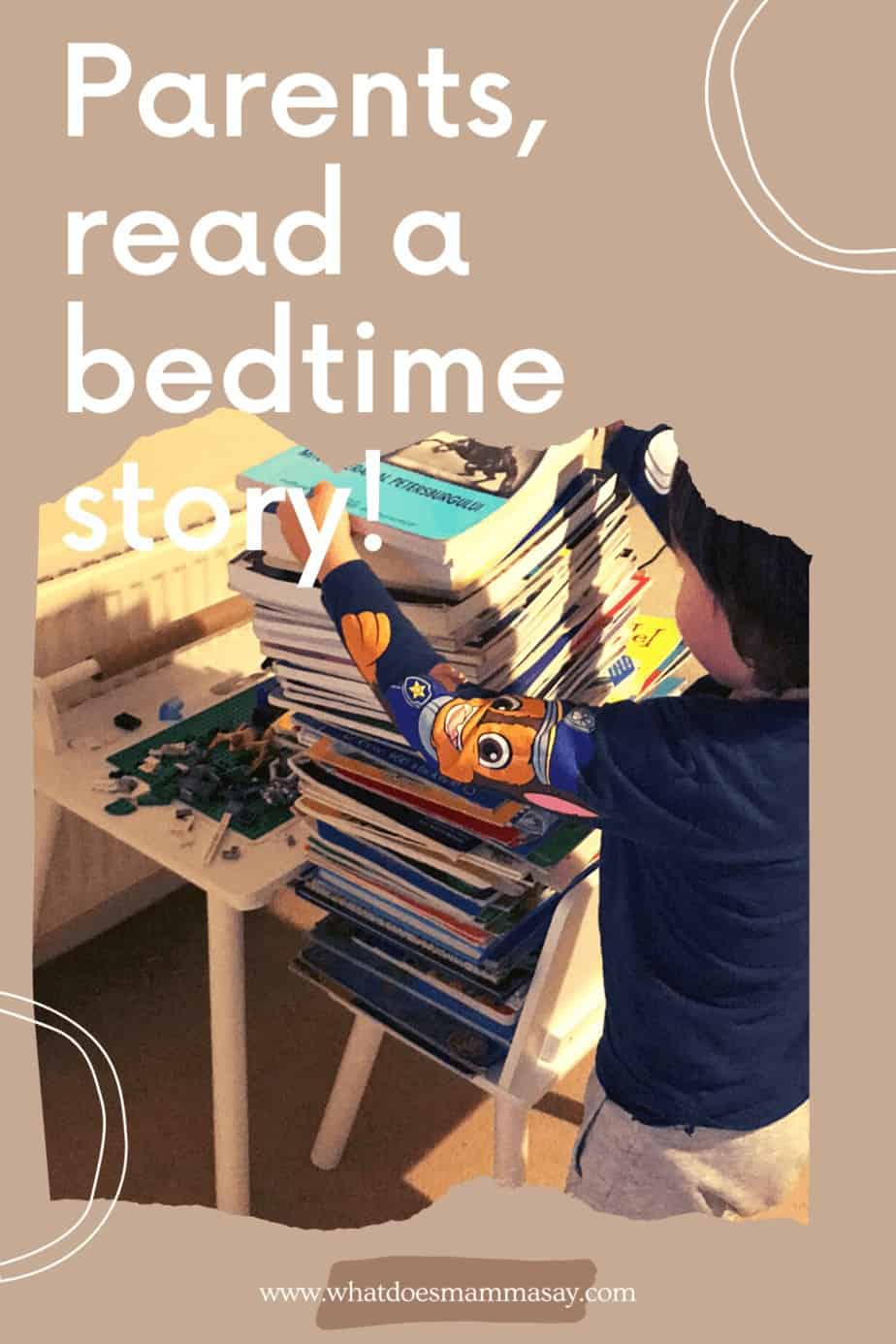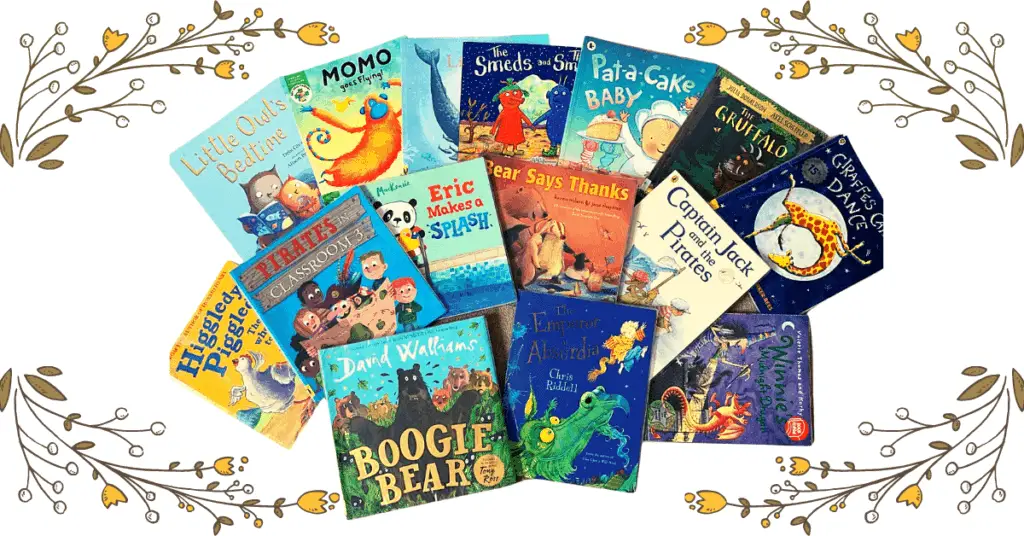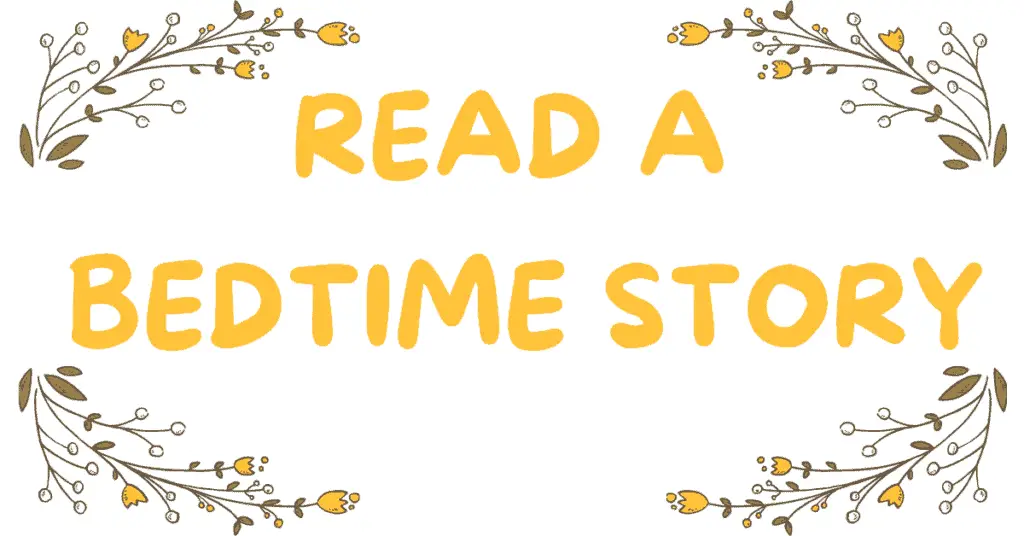When you read a bedtime story to children it is extremely beneficial, not only for language development, literacy skills, school progress, confidence but also for family bonding. You can read more about comprehensive reading statistics worldwide, but the news is worrying.
Given the decreasing trend of children who read every day, only 26% of under 18s spent some time reading each day, I am addressing parents now. “The culture of the home represents the only and therefore the natural and inevitable way to be” (Brooker, 2002: 1).
In other words, children are first defined by their very first environment, their home, parents, family etc. And this first environment influences, amongst others, a child’s language development.

This post may contain affiliate links and I may earn a small commission when you click on the links at no additional cost to you. As an Amazon Affiliate, I earn from qualifying purchases. You can read my full disclosure here.
What Happens When Parents Read With Children?
My UCL professor, dr Rachel Levy, has carried out extensive research on families reading with children (shared reading practices) and their impact on children. I intend to share with you some of her findings that I think all families should be aware of.
In one of her studies, professor Levy showed reading within a shared reading context is very varied and flexible, but there are 4 elements that all families share, regardless of cultural, economic, or social background. She calls these similarities the four Ts: text, talk, time, and togetherness. It appears that for all those involved, reading started from a text, be it a book, a tablet, a piece of text on paper etc This text was the catalyst, the starting point of shared reading. However, as reading progressed, some tended to move away from the text to engage in talk time.
Some parents wanted to talk to children about their day, others were eager to comment on the text, children had lots of comments and parents supported their exploration, offering answers and time for children to engage with this new knowledge. All those involved were very flexible, reading was open-ended, free, and pleasurable.
Unlike school reading sessions, shared reading in families was a moment of togetherness, of bonding and happiness, pleasure, with no ulterior motive, no teaching of skills, or predetermined learning outcomes. Many parents called this “our time”/ “his time”. Some sort of protected time, as almost always it involved cuddling or closeness.
Find out what books we recommend for little readers in 9 Bedtime Stories to Read to Kids.
Do Parents Who Didn’t Enjoy Reading Themselves Read With Their Children?
Research shows that there is little information about the factors that influence shared reading practices in homes. One aspect of what influences reading in the family was researched by Professor Levy. This was the influence parents’ own view of reading had on their reading practices with children. In other words, if parents didn’t themselves enjoy reading, would they be reading to their children?
It was very interesting to see that parents who didn’t enjoy reading in school, started to enjoy reading with their children. Some argued that they disliked reading because there was too much anxiety connected to reading aloud in class.
Others mentioned that there was too much focus on decoding print, or on answering questions right. Out of these, almost all said they did not enjoy the experience because of stress and the possibility of public humiliation. However, when reading with their own children, reading seemed easy and enjoyable. All these parents prioritized enjoyment over learning. Some of them were disappointed that at school children “focus too much on phonics and things”.

When reading with parents, the activity was not forced, didn’t carry judgment, and involved time spent together. Parents even reported that they learn alongside their children. It was fascinating how talk is embedded in shared reading. In the study it was a vital component, therefore should not be treated separately. This is called dialogic reading, and research shows that this type of reading is more effective than simply reading( Mol at al, 2008). Therefore, when reading, don’t limit yourselves to the text. Engage with the text, make comments, allow your little one time to reflect, ask questions, explore.
You can also learn more about the importance of reading to kids in this great article.
The Million Word Gap
Researchers also argue that singing songs and reciting rhymes with children promotes phonological awareness. Moreover, they note that children who see their parents read feel motivated to read as well. ” Nearly twice as many young people who report that they see their mother and father read a lot, also report that they read outside of school every day” (Clark & Hawkins, 2010: 129).
This is a great website that promotes reading and offers a great variety of books, articles, and online books for little kids.
My main concern is that, according to research, there is a large number of students who leave school with a poor identity of themselves as readers(Alvermann, 2001). Much like the parents described above. Research also shows that every year, there is a vast number of young people who are unsuccessful in literacy-based assessment (Greenleaf & Hichman,2009).
A study done by Logan et al, showed how children who are read to at home are exposed to 1 million more words than those who are not read to by the time they reach 5 years of age. This is an important contributor to the gap in reading achievement later on in school.
By reading together, both child and parent/caregiver share attention and concentrate towards a third object, the book, a fact which helps children acquire new words. In other words, reading together can help vocabulary development, which in turn will affect reading achievement.
How Different Families Read and Impact on School Progress
One study done by Shirley Brice Heath( 1982) particularly worries me as it shows the impact on school performance of family reading practices. The study focused on three groups living in the US in close neighborhoods, but of various socio-economic backgrounds.
One of the groups enjoyed reading to their children, exposing them to visual stimuli, books, numbers, letters. The adults in this group linked school success to learning to love books and learning what books can do for you. They were very school-oriented and even engaged children in school practices of reading: what questions, giving reasons, state likes and dislikes, compare etc

The second group also read to children and exposed them to all sorts of written material, they focused on letters and numbers. However, adults simplified stories if they considered them too difficult for children, and they were asked to remember the content and answer questions, therefore not engage in an ongoing process of participation: children didn’t ask questions, make comments, parents didn’t extend the child’s knowledge and meet their curiosity. Beyond the age of 3, children were told to be quiet and listen.
Another important aspect was that the adults in this group didn’t link books to the real world and offered little explanation/commentary for things in general. Their children never asked comprehension questions, were not asked reasoning questions, and could not fictionalize events. They were also rarely asked to make personal commentary. During the first years in school, these children managed to perform well in literacy. However, they had no way of keeping up in higher grades and were also unable to seek help from teachers, as these skills were never trained.
We loved these 15 bedtime story books and we hope you do too. There are free reading worksheets included there.
The consequences of never reading to children
The third group, living in a poor community, never read to children and there were rarely any written materials around. They never received manipulative toys, books, puzzles. Adults believed that children come into learning by experiencing, they didn’t believe that they have a tutoring role in children’s learning. Children picked up language by being constantly in the presence of adults and their conversations. And because adults “rewarded signs of their successfully coming to know”.
In these communities, telling stories was highly competitive, but they had no structure, they continued for as long as the audience was engaged. Children had to sort out the productive rules of speech. These children generally scored in the lowest percentile in the reading readiness test. And they decide that by the end of the 6th grade they stop trying.

Your Reading Is Valuable and Essential, Parents!
This study is extremely valuable in understanding the importance of family reading practice. It is my greatest hope that parents who read this article, reconsider their approach to reading. and find those valuable 5 minutes every day to stop and read with their little ones. It makes a HUGE difference.
As you have read above, when never read to, children fail in school. And this impacts their self-esteem, their progress, their vision of school altogether. You have also seen the number of words you can expose your child to by reading daily until the age of 5, 1 MILLION words.
It is an urgent need, one that I truly hope parents can see! Your reading is VALUABLE and ESSENTIAL. Literacy skills impact writing as well, as reading and writing go hand in hand, and without these two mastered, a child’s school progress suffers.
As professor Levy concluded:” It is important that parents have the confidence to keep on prioritizing enjoyment within their shared reading relationships”. You, dear parents, have the mission of creating a love of books, schools have little time for enjoyment and bonding. But sharing a story with your little one before bedtime can do that. And it can make ALL the difference.
We share all of our ideas on our Facebook group Learning Activities for Kids.
Learning activities for kids

Hi. I am Monica, an experienced ESL teacher and early years student, mother to a preschooler and passionate reader.


Literacy abilities have an affect on writing as well, because reading and writing work hand in hand, and a child’s academic achievement suffers if these two skills are not mastered. Thank you!